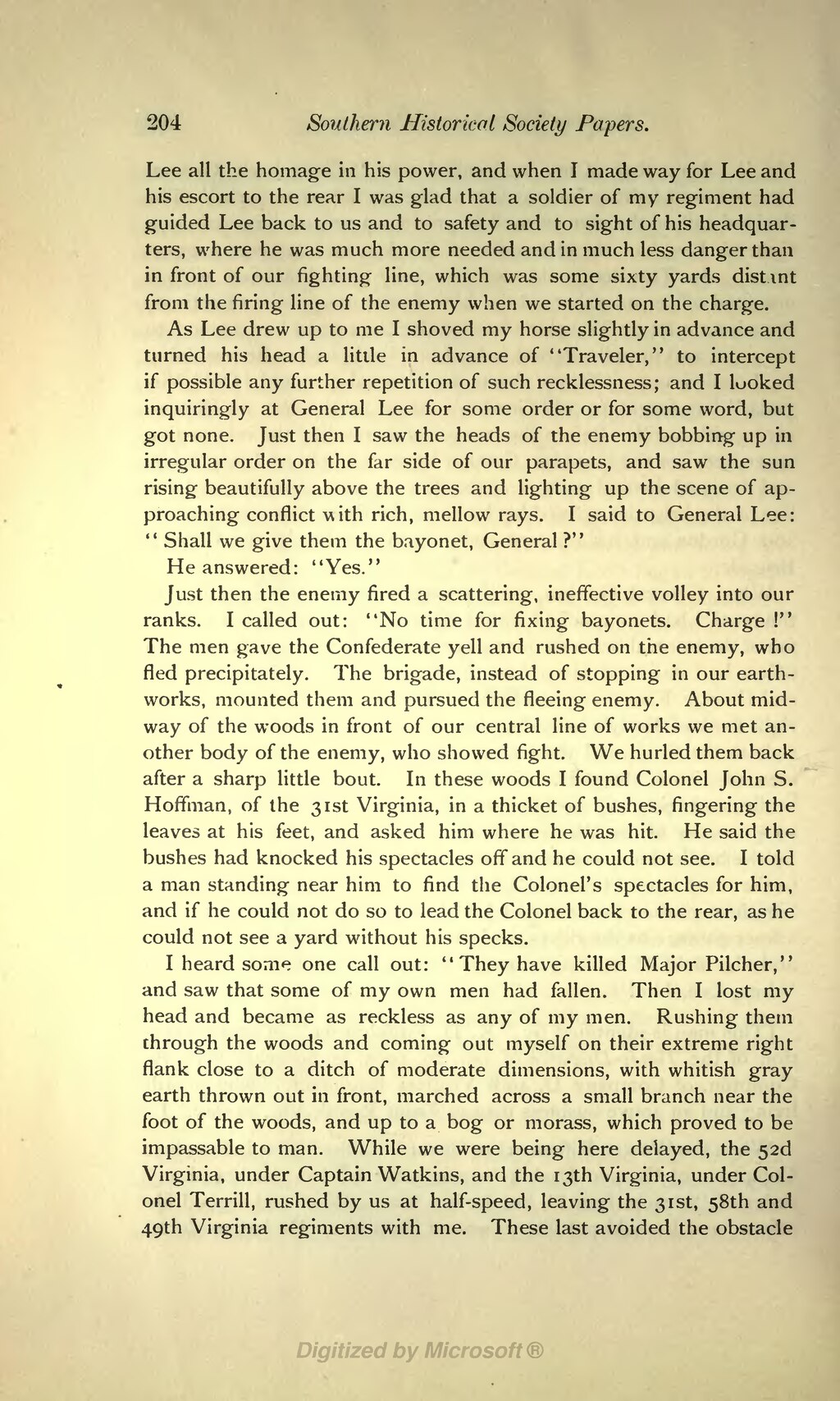204 Southern Historical Society Papers.
Lee all the homage in his power, and when I made way for Lee and his escort to the rear I was glad that a soldier of my regiment had guided Lee back to us and to safety and to sight of his headquar- ters, where he was much more needed and in much less danger than in front of our fighting line, which was some sixty yards distant from the firing line of the enemy when we started on the charge.
As Lee drew up to me I shoved my horse slightly in advance and turned his head a little in advance of "Traveler," to intercept if possible any further repetition of such recklessness; and I looked inquiringly at General Lee for some order or for some word, but got none. Just then I saw the heads of the enemy bobbing up in irregular order on the far side of our parapets, and saw the sun rising beautifully above the trees and lighting up the scene of ap- proaching conflict with rich, mellow rays. I said to General Lee: " Shall we give them the bayonet, General ?"
He answered: "Yes."
Just then the enemy fired a scattering, ineffective volley into our ranks. I called out: "No time for fixing bayonets. Charge !" The men gave the Confederate yell and rushed on the enemy, who fled precipitately. The brigade, instead of stopping in our earth- works, mounted them and pursued the fleeing enemy. About mid- way of the woods in front of our central line of works we met an- other body of the enemy, who showed fight. We hurled them back after a sharp little bout. In these woods I found Colonel John S. Hoffman, of the 3ist Virginia, in a thicket of bushes, fingering the leaves at his feet, and asked him where he was hit. He said the bushes had knocked his spectacles off and he could not see. I told a man standing near him to find the Colonel's spectacles for him, and if he could not do so to lead the Colonel back to the rear, as he could not see a yard without his specks.
I heard some one call out: " They have killed Major Pilcher," and saw that some of my own men had fallen. Then I lost my head and became as reckless as any of my men. Rushing them through the woods and coming out myself on their extreme right flank close to a ditch of moderate dimensions, with whitish gray earth thrown out in front, marched across a small branch near the foot of the woods, and up to a bog or morass, which proved to be impassable to man. While we were being here delayed, the 52d Virginia, under Captain Watkins, and the i3th Virginia, under Col- onel Terrill, rushed by us at half-speed, leaving the 3ist, 58th and 49th Virginia regiments with me. These last avoided the obstacle
